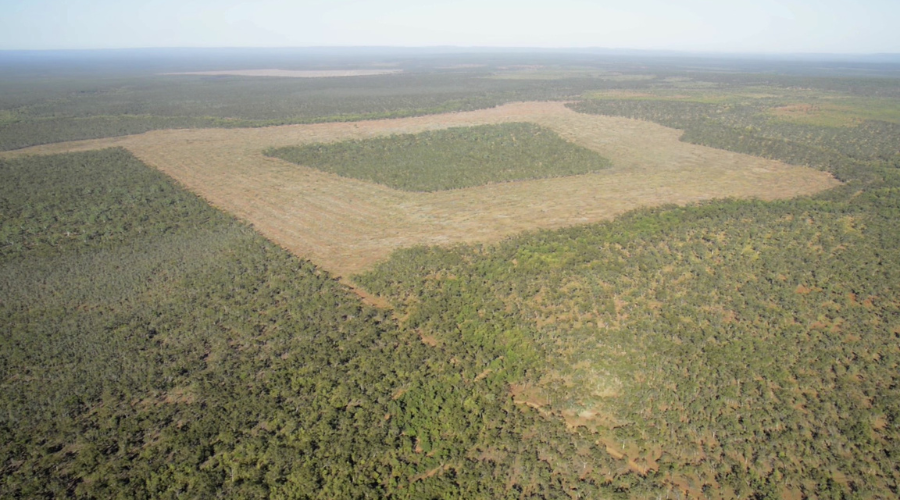Media Releases - 10 June 2023
FOI documents reveal Federal Government’s deforestation denial

Documents obtained via FOI have revealed the Federal Government significantly downplayed the impact of Australia’s deforestation activities at a crucial global agriculture minister’s conference in Berlin earlier this year. Just one month before the meeting took place, the European Union agreed on a new law that will prevent the import of commodities linked to deforestation into the EU market. The EU and Australia are undertaking negotiations on a free-trade agreement that would open up trade between the two parties, and includes products that may have links to deforestation. As a result, Australia’s deforestation activities have been placed under scrutiny.
The groundbreaking law, agreed by EU countries and Members of the European Parliament in December 2022, poses a significant risk to Australia, as we persist in logging millions of hectares of forest across the nation every year. Conservation organisation, The Wilderness Society, has stated these world-first regulations send a clear message that Australia must take swift action to end deforestation—the law also being an opportunity to foster sustainable industries that do not rely on nature destruction.
However, this message does not seem to have been received by the Federal Government. Documents made public this week via FOI containing key talking points for an EU Commission panel reveal that Federal agriculture Minister Murray Watt was briefed to deny that Australia’s beef or leather industry could be linked to deforestation, and to state that overall forest coverage is increasing. The document further notes that details of Australia’s land clearing practices should only be raised “if required”, and claims Australia has a long standing commitment to sustainable forestry practices.
Strikingly, it was pointed out in a debrief following the Minister’s visit that even he did not feel the evidence and messaging provided in the brief regarding sustainable agriculture practices was convincing enough.
Australia is the only ‘developed’ economy among the world’s deforestation hotspots—ranking alongside the Amazon, the Congo and Borneo. Australia’s forests and bushland are being cleared at an accelerating rate, including high conservation value (HCV) areas. Native forest logging is exempt from oversight by our national environment laws, and it instead managed on a state by state basis under Regional Forest Agreements, which unfortunately leave the gates wide open for unsustainable forestry practices.
Much of this deforestation is driven by agriculture, in particular beef, which is one of Australia’s main exports to the EU. In 2020 alone, Australia exported €132 million in beef to Europe. Additionally, mountain ash forest, some of which is listed as critically endangered on the IUCN Red List, is logged for packaging and window frame timber which is exported to Europe, amongst other places.
Tim Beshara, Manager of Policy and Strategy at The Wilderness Society, said, “The positive international engagement both Plibersek and Chalmers have done (in sustainable finance initiatives and with the global biodiversity framework) are their most significant point of difference on environmental matters from the previous government. But clearly the message of "the environment is back" hasn't spread across the whole government.
Australia's devastatingly poor biodiversity record will increasingly become a black mark for Australian businesses seeking market access or finance and that's currently most apparent in Europe. But the only way to fix it, is to fix it. That is to turn around the decline in nature. Not to try it on with definitional games and spin.
“Somewhere along the way, lobbyists have convinced themselves that not only is bulldozing bushland not deforestation, but also that bulldozers are good for nature. It's the equivalent of saying coal is good for climate change.
“Anyone who has engaged in the discussion on deforestation and biodiversity risk in Europe would know that those denialist lines would simply attract suspicion and undermine trust. All of the EU officials, negotiators and investors we have met with haven't been interested in word games, they want to know what they can do to drive positive environmental change in Australia and avoid making it worse.”
For interviews with Tim Beshara, Manager of Policy and Strategy at The Wilderness Society, contact Rhiannon Cunningham on 0419 992 769 or [email protected]